The origin of hand knotted carpets locally known as \”Kal baffi\” dates back to 15th century after which it progressively attained the high degree of perfection. It is said that Sultan Zain-ul-Abidin brought carpet weavers from Persia and central Asia in to Kashmir to train the local inhabitants.
Carpets from 200 knots to 900 knots/sq. inch both in wool & silk yarn have attained such excellence that they rank amongst the finest in the world. The loom used in Kashmir carpet weaving is composed of two horizontal wooden beams between which the wrap threads are stretched, one beam in front of the weaver and the second behind the first. The difference between a carpet and other hand woven rugs lies in the fact that short lengths of the thread or yarn are tied to wrap chains to form the pile of the carpet. These are commonly called knots though it is a loop rather than an actual knot.
There are different types of knots and in Kashmir the Farsi baff and the Persian system known as Sehna, or Sinneh, knot is originally used. Very simple tools are used to thread these knots, a wood or Metal comb to push knots and weft tightly together and pair of short scissors to cut the pile of the carpet to an even form once it is finished.
Carpets in 18×18, or 20×20 knots per sq. inch are commonly made in Kashmir. Some very fine silk carpets in different sizes have been created with density of knots as high as 3600 knots per sq. inch but these are rare Exhibits of skill and mainly made for display or museum pieces.
The designs reveal itself along the weft lines in wool or silk, while the warp is drawn in cotton. Quality and hence value, is determined by the number of knots to the square inch and fineness of the material used.
Kashmir also excels in manufacture of silk carpets. Designs and patterns in Kashmir carpets continue to be predominantly inspired by classical Persian and Central – Asia rugs. Thus Kashmir has been creating Kashan and Kirman, Tabriz and Isfahan, Meshed and Bokhara with such superb artistry that these can compare with the best in the regions of their origin. Attractive local variations have also been evolved. Kashmir carpets usually come in the sizes of 2\’x3\’; 2 1/2\’x4\’; 3\’x5\’; 6\’x4\’; 6\’x9\’;

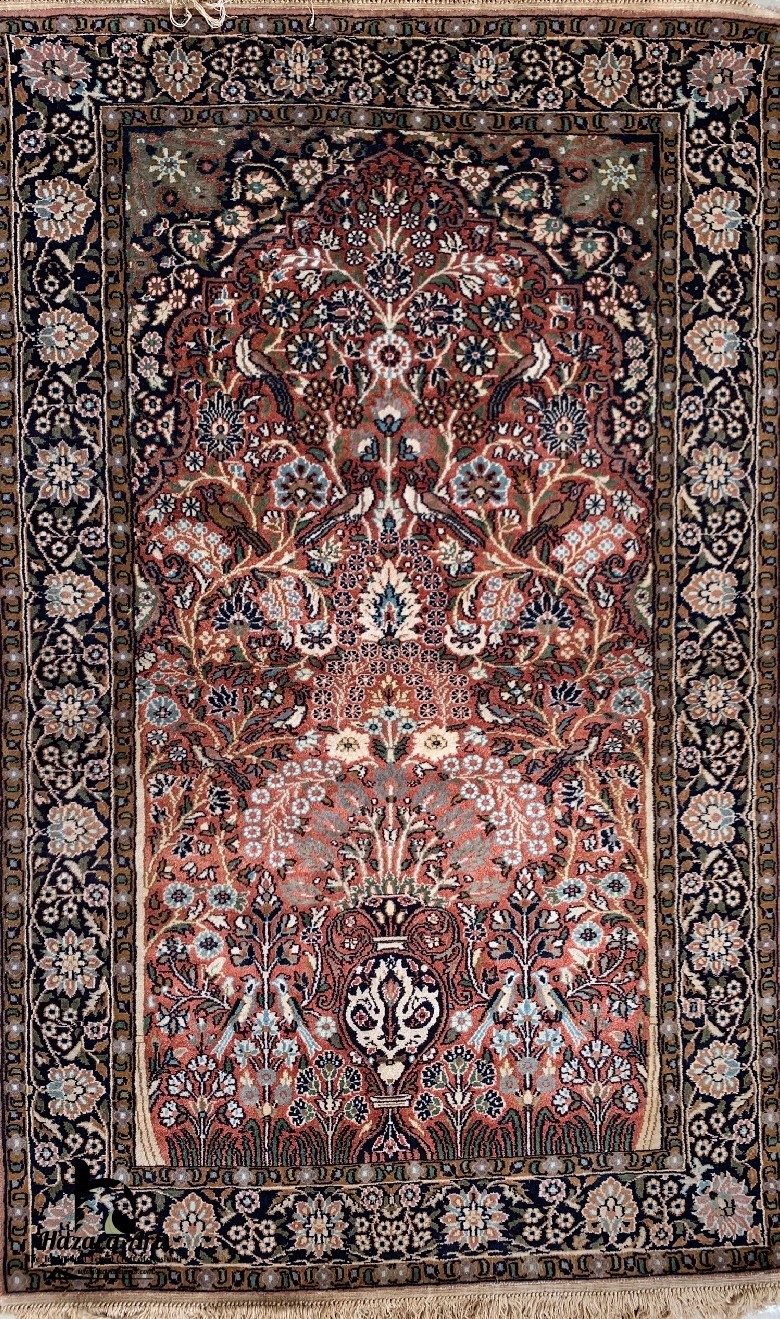
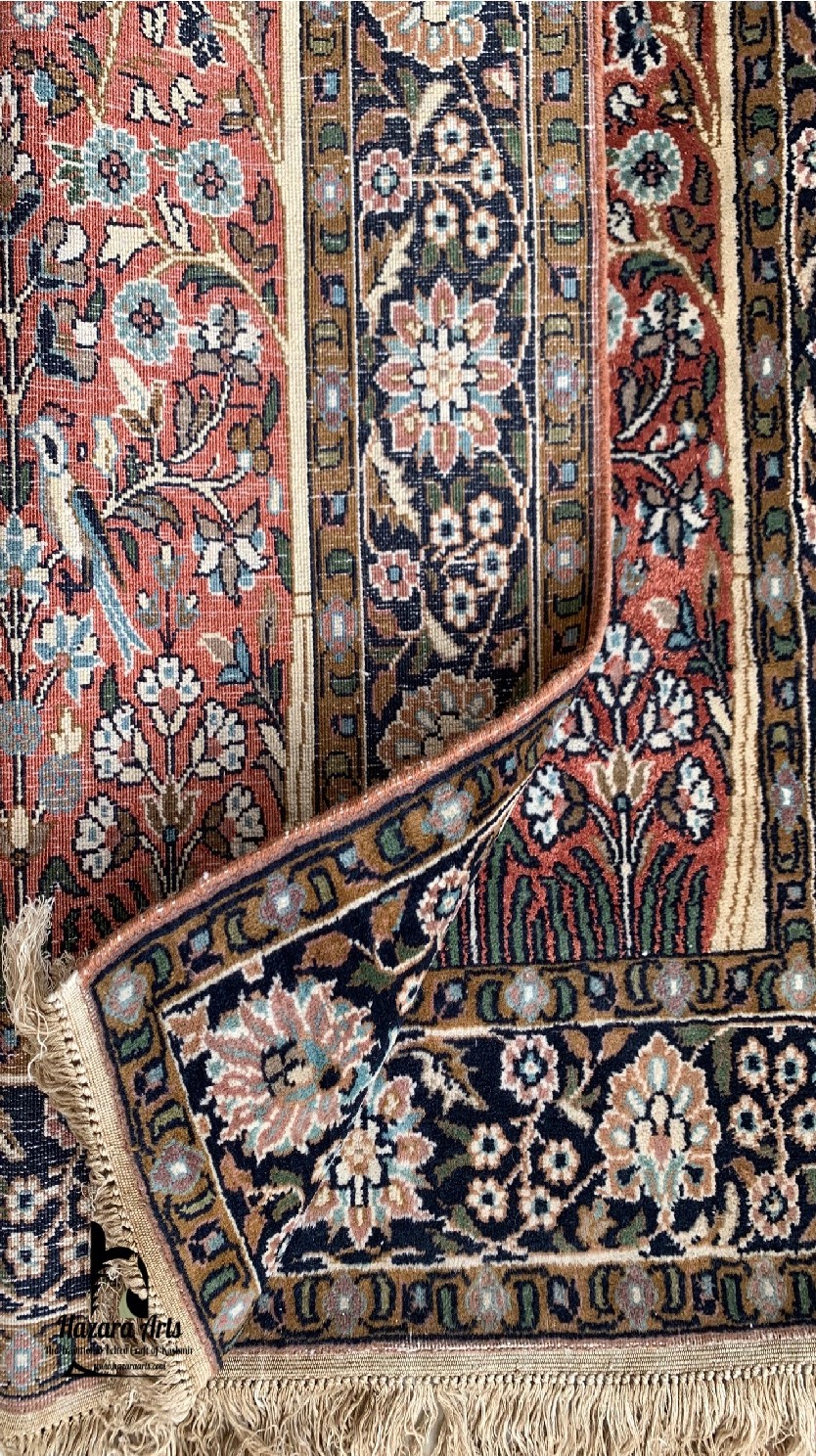
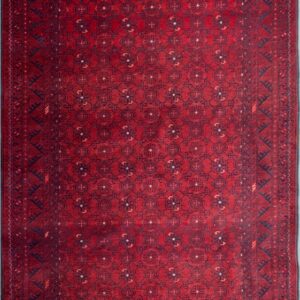

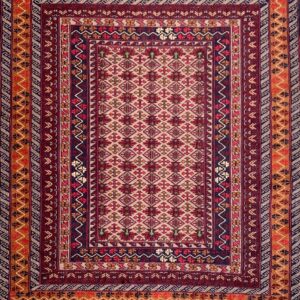
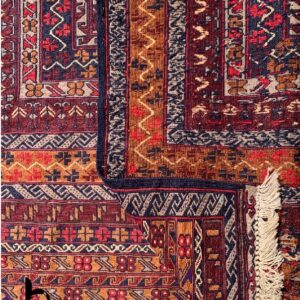

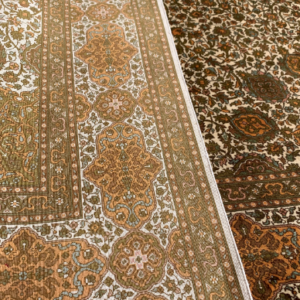

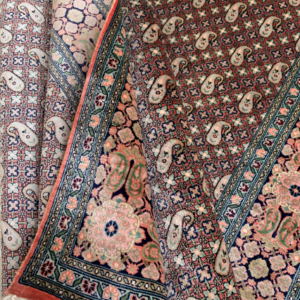

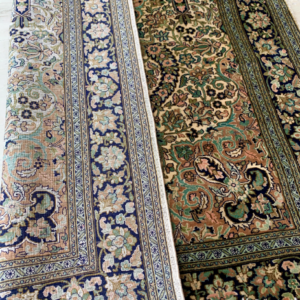

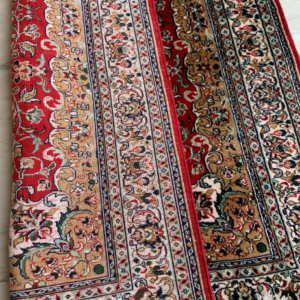
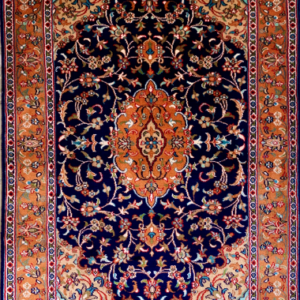

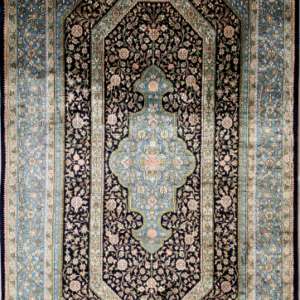


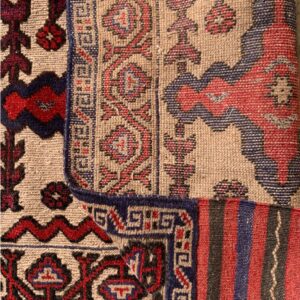
Reviews
There are no reviews yet.